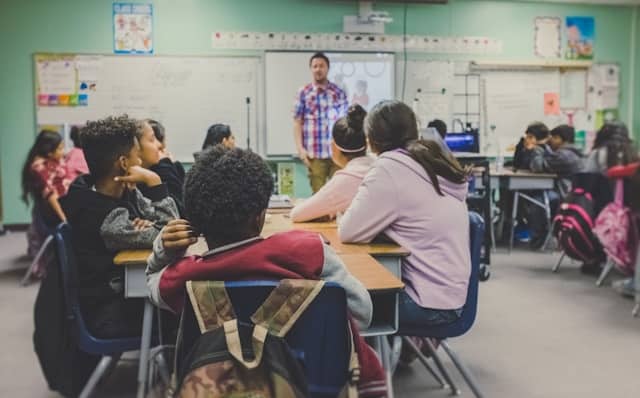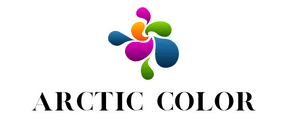How to Enhance Remote Learning Experiences for UK Higher Education Students?

In the wake of the COVID-19 pandemic, the face of education swiftly transitioned from traditional classroom settings to online platforms. This radical transformation, although abrupt, introduced us to the enormous potential of digital education delivery mechanisms. These online platforms allowed students to continue their learning journeys from the safety of their homes, ensuring that their academic progress is uninterrupted. The realm of higher education in the UK wasn’t an exception to this, as universities quickly adapted to this new teaching paradigm. However, as we delve further into this digital era of education, it is critical to constantly evaluate and enhance remote learning experiences, ensuring they remain effective for students.
Leveraging Technology for Optimised Learning
The role of technology in remote learning is pivotal. It is a major catalyst that facilitates the transition from traditional classroom teaching to virtual learning. However, it’s not only about using technology but using it effectively that makes a difference.
A découvrir également : How Can UK Independent Musicians Monetize Their Work Through Streaming Platforms?
Online learning management systems such as Moodle, Blackboard, and Canvas have gained popularity in recent years, and their importance has exponentially grown post-pandemic. These platforms provide a structured way to deliver course content, administer quizzes and tests, monitor student participation, and manage grades.
Moreover, the advent of virtual reality (VR) and augmented reality (AR) in education cannot be overlooked. These technologies can be utilised to create immersive learning experiences for students, making complex subjects more understandable and engaging. For example, a biology student could virtually dissect a frog or a history student could take a virtual tour of ancient Egypt.
Sujet a lire : Career in consulting: land a top firm job with expert guidance
Emphasising on Effective Communication
In a remote learning environment, effective communication between students and teachers is even more critical than in a traditional setting. Teachers need to ensure that students understand the course material and are able to keep up with the pace of the class.
Emails, discussion boards, and chat rooms are some of the tools that can be used to foster effective communication. Providing clear instructions and expectations can prevent confusion and misunderstanding. Regularly scheduled online office hours can also be a useful tool to provide additional support to students who may be struggling with the course material.
Also, teachers should encourage students to provide feedback about the course. This can help in identifying areas for improvement and making necessary changes to enhance the learning experience.
Incorporating Flexibility in Learning
One of the major benefits of remote learning is the flexibility it provides. Students can learn at their own pace and at a time that suits them the most. However, it’s important that this flexibility doesn’t turn into a form of laxity.
Course schedules and deadlines should be clearly communicated at the start of the semester. This will provide students with a clear roadmap for their learning journey. Also, teachers should be flexible in their teaching methods. They should be open to trying new techniques and tools to enhance the learning experience.
Fostering a Community of Learners
Creating a sense of community among students is crucial in a remote learning environment. Students should feel connected with their peers, even if they are not physically present in the same room.
Discussion forums, group projects, and peer review activities can foster a sense of community among students. These activities can also enhance learning as students can learn from each other’s perspectives and experiences.
Moreover, recognising and celebrating student achievements can boost motivation and engagement. Teachers can incorporate gamification techniques, such as leaderboards or badges, to encourage participation and effort.
Preparing Students for the Digital Era
As we move further into the digital era, the importance of preparing students for the digital world cannot be understated. Digital literacy skills, such as the ability to find, evaluate, and use information effectively, are crucial for students in the 21st century.
Teachers can incorporate digital literacy skills into their curriculum. For example, they could ask students to conduct online research for a project or use digital tools to create a presentation. This will not only enhance their learning experience but also equip them with the skills needed in the digital era.
In conclusion, remote learning in higher education presents unique challenges, but with the right approach, it can provide an effective and engaging learning experience for students. By leveraging technology, emphasising on communication, incorporating flexibility, fostering a community, and preparing students for the digital era, we can enhance remote learning experiences for UK higher education students.
Reimagining Group Work in a Virtual Environment
In a traditional classroom setting, group work is a common tool used to foster collaboration and enhance learning. However, in a remote learning scenario, the dynamics of group work change. In this online setting, teachers can still leverage the benefits of group work by creatively using technology.
For instance, breakout rooms in video conferencing tools like Microsoft Teams can facilitate small group discussions. Google Scholar can serve as a valuable resource for research-based projects, enhancing the learning experience. Moreover, shared documents or whiteboards can be used to collaboratively work on tasks in real time. This not only adds a layer of interactivity to the learning process but also encourages student engagement.
Furthermore, asynchronous delivery of group work can be considered. This involves students collaborating on tasks at their own convenience, within a given deadline. This approach recognises the different schedules and time commitments of students, making remote education more inclusive and accessible.
The key here lies in clear guidelines regarding group work. Students should be aware of their individual roles and responsibilities in the group, the expected outcomes, and the assessment criteria. This would ensure that all students contribute effectively and that learning outcomes are achieved.
Enhancing the Remote Teaching Approach
The approach to teaching in a remote learning environment should be different from a traditional classroom setting. This involves not just delivering lectures online, but rethinking teaching strategies to maximise learning experiences.
One way to do this is by adopting a blended learning approach. This involves combining synchronous (real-time) and asynchronous (at your own pace) teaching methods. For example, a teacher could deliver a lecture in real time, provide reading materials for students to explore at their own pace, and then organise a discussion forum to further explore the topic.
Another approach is the flipped classroom model. In this model, students review lecture materials at their own pace before the class. The online class time is then used for more interactive activities, such as discussions, problem-solving, or group work.
Different activities would cater to different learning styles, thus reaching a wider range of students. In addition, frequent formative assessments could be used to gauge students’ understanding and adjust teaching strategies if required.
Conclusion: Enhancing Online Teaching and Learning Experience Amid the COVID Pandemic
The sudden shift to remote learning due to the COVID pandemic has presented unique challenges to higher education. However, it has also brought forth opportunities for innovation in teaching-learning methodologies.
Leveraging technology effectively can create an engaging and interactive online learning environment. Incorporating flexibility and fostering a community can make remote education more inclusive and supportive. Through group work and innovative teaching approaches, we can enhance learning experiences and student engagement.
Moreover, preparing students for the digital era is a vital aspect of remote education. As we navigate through these unprecedented times, it’s crucial to equip students with the skills required in this digital age.
In essence, enhancing remote learning experiences for UK higher education students involves a combination of leveraging technology, effective communication, flexible teaching-learning methods, fostering a community, and preparing students for a digital future. As the landscape of higher education continues to evolve, it’s essential to continuously evaluate and enhance our remote teaching methods to provide the most effective learning experiences for our students.
